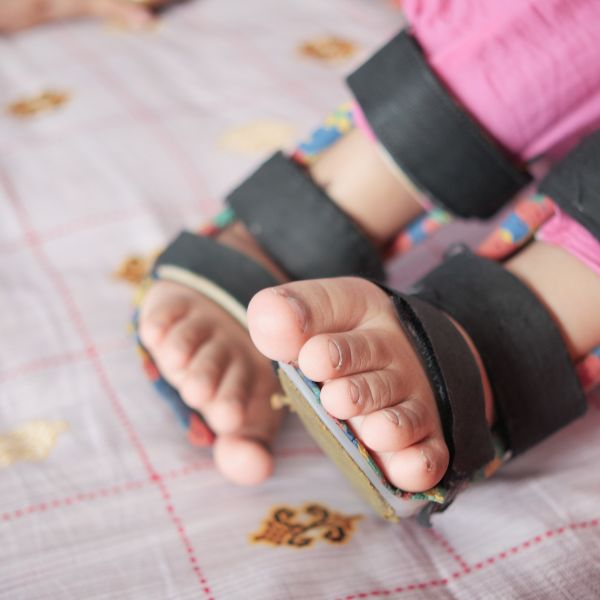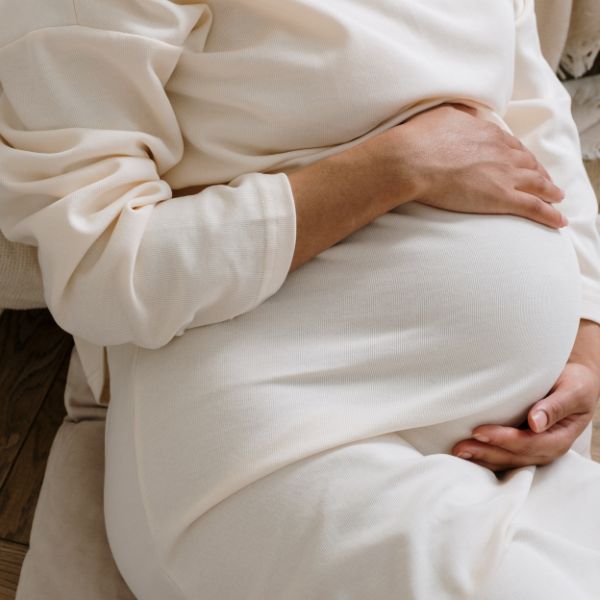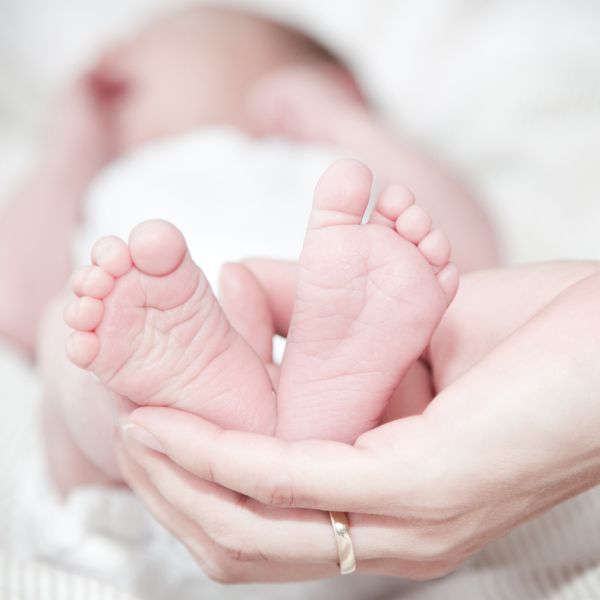International Group B Strep Awareness Month...
Gestational Diabetes Negligence & Misdiagnosis Compensation Claims.
During pregnancy, hormonal changes can cause women to develop conditions and suffer with health problems that were not present beforehand. One such condition is gestational diabetes.
This is the term used to describe diabetes which develops during pregnancy, and typically subsides once the baby is born. It affects between 5% – 8% of all pregnancies in the UK, and once diagnosed it is fairly simple to manage. However, if gestational diabetes is undiagnosed or left unmanaged, it can lead to a number of potential complications for both mother and baby further down the line.
If you developed gestational diabetes during your pregnancy which was not detected by the medical team responsible for your care, you may be able to claim medical negligence compensation. At Lanyon Bowdler we have a wealth of experience in working with clients who have received substandard care from both NHS and private hospitals. Not only can we help you to claim financial compensation for the negligence you have suffered, we can also help you to access the support you need in your recovery journey.
What is Gestational Diabetes?
Diabetes is a condition caused by an excess of glucose in the blood, and the inability of the body to manage its blood glucose levels. Insulin is the hormone responsible for controlling the amount of glucose in the blood, but during pregnancy the production of the hormones progesterone, oestrogen, and human placental lactogen (HPL) can cause the body to become insulin resistant. This means that the cells don’t respond as well as they should to the insulin, therefore levels of glucose in the blood remain too high.
When a mother develops diabetes during pregnancy, having never suffered from the condition previously, it is known as gestational diabetes. The condition typically develops after 28 weeks gestation, and in the majority of cases it subsides once the baby is born.
Our Gestational Diabetes Compensation Expertise
The medical negligence team at Lanyon Bowdler supports parents affected by Gestational Diabetes. If your conditioned was misdiagnosed or worsened because of negligent behaviour of medical staff, you could be eligible for compensation.
Here at Lanyon Bowdler we understand that no amount of money can make up for the negligent treatment you have been subjected to, and the health problems that have occurred due to said negligence. However, when you make a claim for medical negligence compensation, not only could you be receive financial compensation for any injuries or losses suffered, but we will also ensure that the hospital carries out a full investigation into why it happened. Of course this doesn’t change your own experience, but it will ensure that any issues in care are identified and changed so as to ensure that no one else suffers the same experience in the future.
Our experienced and fully qualified medical negligence solicitors will work hard to ensure you receive the maximum amount of compensation possible. We handle each case with empathy and dignity, taking the time to really get to know you and your family and to fully understand what you have been through. We pride ourselves on taking a holistic approach to your compensation claim, ensuring we also provide you with a support network as you navigate life after your experience. Let our people be a part of your team, and together we can achieve the best result for you.
Your Gestational Diabetes Negligence questions answered
Gestational diabetes can happen to any mother during pregnancy, however there are a number of risk factors that increase the likelihood of the condition developing, including:
- A mother who is considered overweight or obese
- A family history of diabetes
- Gestational diabetes diagnosed in a previous pregnancy
- A previous pregnancy in which the baby weighed 10lb or more
- A mother who’s ethnic background is Black or African Caribbean, Middle Eastern, or South Asian
At your first antenatal appointment the midwife should check if any of the above risk factors apply to you, and you should then be offered a gestational diabetes test in your final trimester. If you are considered high risk for gestational diabetes and this was not recognised or acted upon by the medical professionals responsible for your care, and you then went on to develop the condition which was subsequently undiagnosed or mismanaged, you may have a case for claiming clinical negligence compensation. Our team of compassionate and professional clinical negligence solicitors can offer advice and assistance, so please do get in touch.
There are a number of different symptoms which women with gestational diabetes may present with, including:
- Feeling more thirsty than usual
- Urinating more often, particularly at night
- Increased levels of tiredness and fatigue
- Losing weight unintentionally
- Blurred vision
- Thrush or genital itching
Some of these symptoms are experienced during pregnancy anyway, such as frequent urination and fatigue, but if you notice any symptoms out of the ordinary it is always advisable to see your doctor or midwife as soon as possible.
Mothers who have one or more of the risk factors for developing gestational diabetes will be offered a test to screen for the condition between 24 and 28 weeks pregnant. The test is called a glucose tolerance test (GTT), and involves a fasting blood test, followed by a glucose drink, and a final blood test two hours later to assess how the body is coping with the glucose.
If gestational diabetes is diagnosed, it can be managed fairly simply in most cases with some changes to diet and exercise, for example cutting down on processed sugar and refined carbohydrates to avoid spikes in the blood glucose levels. Some mothers may need to take medication in order to keep their glucose levels in check.
A diagnosis of gestational diabetes puts the pregnancy in the “high risk” category and requires additional monitoring to identify any complications before they become dangerous. Monitoring is typically done via additional ultrasound scans at 28, 32, and 36 weeks gestation, and weekly checks from 38 weeks pregnant, in order to monitor the baby’s growth and the amount of amniotic fluid present.
Being diagnosed with gestational diabetes can be a stressful and confusing time for an expectant mother, but with the correct management most women will go on to have a healthy pregnancy with no further complications.
However, if your gestational diabetes is undiagnosed or not managed effectively, the continuous high blood sugar levels could lead to complications for both mother and baby, including:
- A baby with a large birth weight – this increases the likelihood of induced labour and assisted delivery which can lead to shoulder dystocia and potentially Erb’s Palsy.
- Vaginal birth may not be possible, leading to a caesarean section which, if not offered quickly enough, could mean the baby is starved of oxygen and develops Cerebral Palsy.
- A larger than average baby could result in tearing during labour or increase the need for an episiotomy.
- The baby may be born prematurely and may need to spend time in neonatal intensive care due to underdeveloped lungs and a weak immune system.
- The baby could be born with low blood sugar levels.
- The baby could have a higher risk of developing diabetes in their childhood.
- The mother could develop type 2 diabetes after the pregnancy has ended.
- High blood glucose levels can affect how well the placenta works, which could potentially lead to a late miscarriage or a stillbirth occurring.
If you notice any changes in your baby’s movements, please phone the triage at your local maternity unit as a matter of priority. There are staff there 24/7 and you will not be wasting anyone’s time by going in for a check-up. If you are concerned for any reason, the staff will always be happy to help put your mind at ease or provide prompt treatment for any issues that arise.
If your gestational diabetes was undiagnosed or unmanaged by the medical team responsible for your care, and you and/or your baby have suffered from the complications caused by high blood glucose levels, you may be entitled to make a claim for medical negligence compensation. Please don’t hesitate to contact our knowledgeable and experienced team of medical negligence solicitors today and we’ll be more than happy to offer assistance and advice.
What our clients say.
Can I Claim Compensation for Undiagnosed Gestational Diabetes?
The medical staff caring for you and your unborn baby during pregnancy have a duty of care to ensure you remain well looked after throughout, ensuring that any potential risks are identified early and responded to accordingly. Failure to uphold this duty of care can have dire consequences for both mother and baby.
Medical negligence can occur in the following circumstances:
- The mother is not screened for gestational diabetes risk factors at her first antenatal appointment.
- The mother develops symptoms of gestational diabetes which is not detected by medical professionals at her routine antenatal appointments.
- The glucose tolerance test is not performed at the appropriate gestation.
- Gestational diabetes is diagnosed but the mother is not provided with an appropriate treatment plan.
- The condition is diagnosed but complications are not recognised when they occur.
- The birth is not managed in the appropriate way.
- The mother and/or baby are not adequately monitored for post-birth complications.
If you believe the treatment you have received during your pregnancy with regards to your gestational diabetes was below the expected standard, and you have suffered adversely as a direct result, you may be able to claim compensation.
Contact Lanyon Bowdler’s Medical Negligence Lawyers Today
By choosing Lanyon Bowdler for a Medical Negligence Compensation Claim, you can rest assured that you have the best legal expertise on your team.
Lanyon Bowdler’s medical negligence team is widely acclaimed and recognised as one of the best clinical negligence departments in the country.
If you have received below standard care and treatment during your pregnancy with regards to your gestational diabetes, and you have been affected as a direct result, you may be able to make a claim.
Give us a call or complete our online enquiry form, to see how our team can help you get the justice and compensation you deserve.
There is no obligation or any charges for our initial assessment.
We have offices in Shrewsbury, Bromyard, Conwy, Hereford, Ludlow, Oswestry, and Telford, so are able to act for clients all over Shropshire, Herefordshire, Mid and North Wales and across the Midlands (including Wolverhampton & Birmingham). As a leading full-service law firm, we can represent you wherever you live in England or Wales.
We are committed to providing exceptional levels of client care and will work closely and considerately with you to help find the best outcomes and help to get your life back on track.
If you wish to complain or seek compensation for any type of birth injury, our team of medical negligence specialists will be able to deal with it in a sensitive and approachable way.
Meet the team.
Case studies.
Latest knowledge.
Our awards and accolades.
Get in touch.
"*" indicates required fields

 Back
Back





























 Blog
Blog











